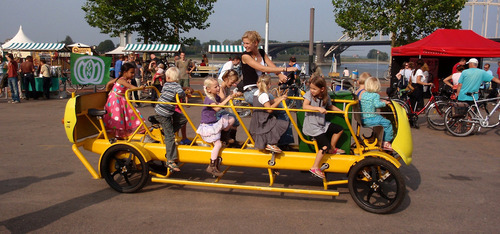Job Alert: Assistant Professor Assessment of Smart and Sustainable Transport Systems – TU Delft @ Netherlands
Department/faculty: Civil Engineering and Geosciences
Level: PhD degree (prof)
Working hours: 38 hours per week
Contract: 5 years
Salary: €3.259 to €6.039 per month gross
TU Delft Faculty of Civil Engineering and Geosciences
The Faculty of Civil Engineering and Geosciences provides leading, international research and education. Innovation and sustainability are central themes. Research addresses societal issues. Research and education are closely interwoven. The faculty consists of the departments of Transport & Planning, Structural Engineering, Geosciences & Engineering, Water management, Hydraulic Engineering and Geoscience & Remote Sensing
The Department Transport & Planning (T&P) focuses on the planning, design, operation and management of transport systems, addressing road transport, public transport and passenger and freight transport systems. T&P consists of 50-60 staff members, of which 20 permanent. The department is responsible for the T&P track in the MSc Civil Engineering, the TU Delft Transport Institute and coordinates the interfaculty Master Transport, Infrastructure & Logistics. The department is the only research group in Civil Engineering in the Netherlands that was awarded the maximum score at all research assessments during the last 15 years.
Job description
Scientific research activities will focus on new assessment methods that support the planning and design of transport systems. Traditionally, congestion in transport systems was addressed by planning new or extending existing transport infrastructure. Today a wider range of measures that aim at smart and sustainable use of available transport networks is considered. As a consequence, there is a need for innovations in methodologies for the quantitative assessment of these measures for all relevant effects: economic, environmental, safety and spatial. Apart from extending and elaborating the assessment framework, there is also a need for methodologies that can be used in quick scan analyses.
Candidates will contribute to the initiation, acquisition and execution of research projects, including supervision of MSc and PhD students. Close cooperation with other members of the scientific staff of the department and wider university and developing relationships with practitioners are essential.
Educational activities will include redesigning the MSc course CIE 4760 Infrastructure projects: assessment and planning, contributing to the BSc course Impacts of Transport Infrastructure on economy and environment and supervision of BSc as well as MSc students.
Requirements
You have an MSc and PhD degree in a relevant subject, preferably Civil Engineering. You can demonstrate outstanding research potential and have published in peer-reviewed, international scientific journals or can show an innovative design and engineering portfolio. You have a holistic, integral approach combined with a strong background in quantitative methodologies and modelling. You are able to connect scientific methods and results to practical applications. Inspiring lecturing skills and excellent command of the English language are considered crucial. Non-Dutch speaking candidates will commit to learn Dutch within 2 years after appointment.
The position offered is a tenure-track position for a period of 5 years, leading to a permanent position assuming good performance in scientific research, project acquisition and education. Depending on your experience you are appointed as assistant tenure track professor (€ 3.259 – € 6.039 per month gross). You will participate in the Tenure Track program to further develop your educational, research and personal skills. You will work in a multidisciplinary team that conducts cutting-edge academic transport research and which has a state of the art transport lab. The team actively connects research results to innovative real world projects and is supervising an increasing number of MSc and PhD students.
Conditions of employment
TU Delft offers an attractive benefits package, including a flexible work week, free high-speed Internet access from home (with a contract of two years or longer), and the option of assembling a customised compensation and benefits package (the ‘IKA’). Salary and benefits are in accordance with the Collective Labour Agreement for Dutch Universities.
TU Delft sets specific standards for the English competency of the teaching staff. TU Delft offers training to improve English competency. If you have less than five years of experience and have not yet obtained your Basic Teaching Qualification, we allow you up to three years to obtain this.
Information and application
More information about these positions can be found at http://www.citg.tudelft.nl/en/about-faculty/departments/transport-and-planning/vacancies/. You may also contact Prof. B. van Arem, phone: +31 (0)15-2786342, e-mail: B.vanArem@tudelft.nl. To apply, please e-mail a detailed CV and a letter of application by 11 April 2014 to D.W.A.M. Verbunt, Recruitment-CiTG@tudelft.nl. When applying for one these position, please mention the position and refer to vacancy number CITG14-11.
Inquiries from agencies are not appreciated.








